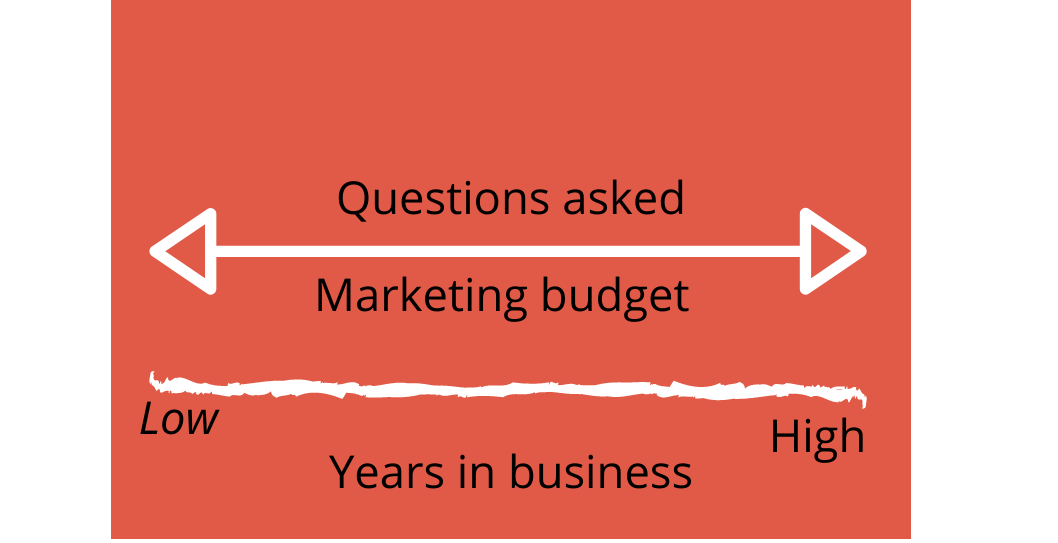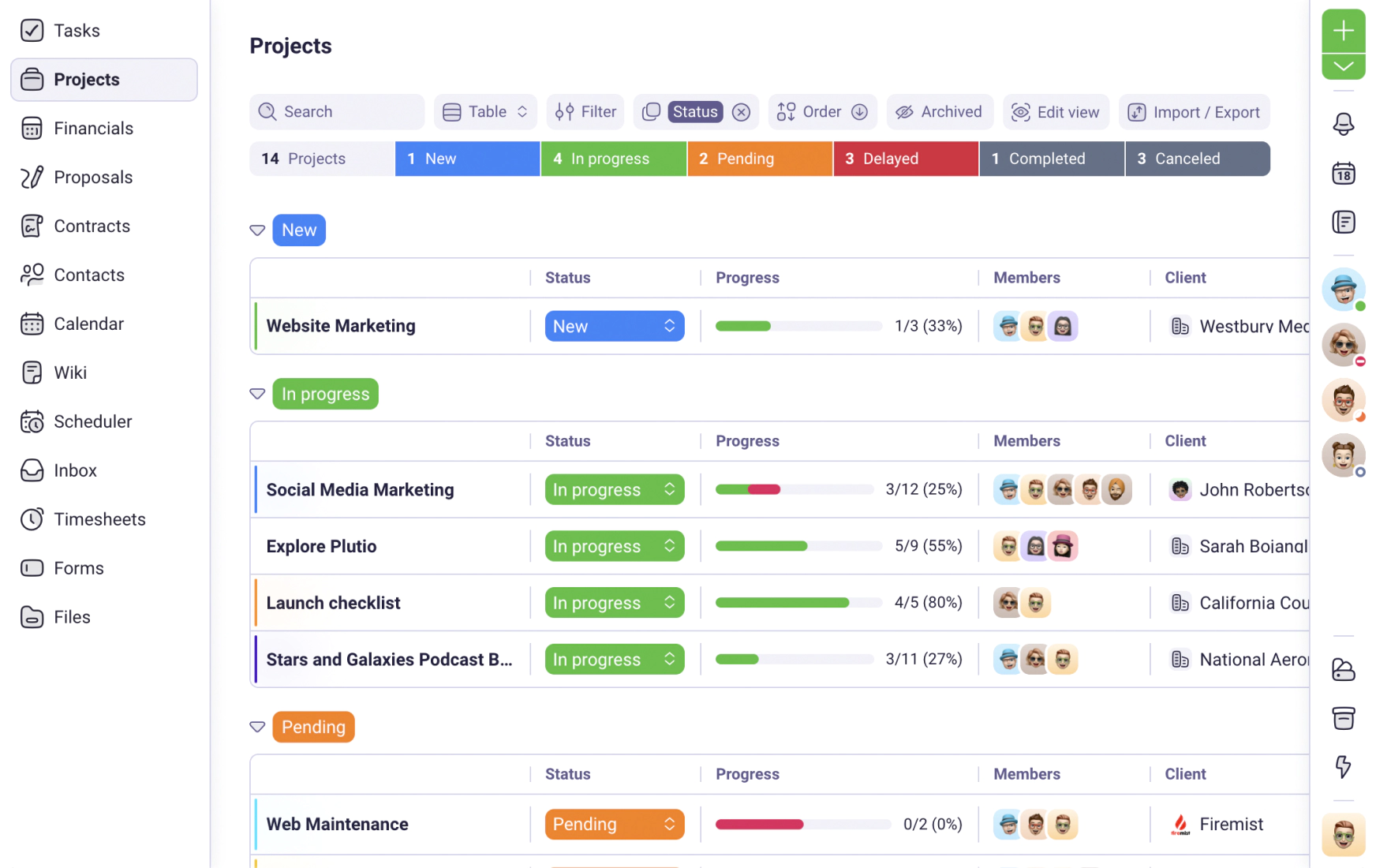We use cookies to personalise and enhance your experience.
As an agency, you may routinely encounter clients who have quite an established offline presence, but are new to the online world. This is especially true in recent times as the pandemic has ravaged brick and mortar stores worldwide - these businesses are now looking for ways to acquire new customers online.
There is a sort of a pattern you will notice with such businesses. Young businesses that are only a year or two old are quite open to the ideas that an agency proposes. However, such businesses also operate with very little budgets.
The large, established businesses are more generous when it comes to spending money for their online campaigns. However, they are also notorious for asking way too many questions during pre-sale discussions.

This is against conventional wisdom that clients with smaller budgets are also more difficult to deal with.
There are a couple of reasons for this.
Larger, offline players come with a legacy and going online could potentially have a bearing on their offline channels.
Take the example of the luxury watch brands. For decades, this industry has stayed off online channels out of fear of compromising their brand identity. However, the pandemic outbreak has forced these companies to start selling online for the first time ever.
For these companies, a dedicated marketing allowable for online channels is not the only concern. These businesses may also worry about where their brand is going to be seen and if this could potentially commoditize their brand identity.
In other cases, there is also concern about distribution. Amazon, for instance, is the largest eCommerce store and growing sales here would require businesses to opt for the FBA (Fulfillment by Amazon) option - doing so would help them rank higher on Amazon Search.
This is a double-edged sword not only because it brings down margins, but also because it can disrupt your supply chain. If your product is understocked in the Amazon warehouse, then you may potentially leave money on the table. However, overstocking here could take inventory away from your main warehouse where margins are higher.
Consequently, as an agency, your job is not just restricted to growing the online channel but doing so in a way that does not disrupt your client’s main channels.
Branding approach
The target audience that your client reaches out to online does not necessarily have to be the same audience they are catering to offline.
For example, a bookshop close to a subway station may target an audience of commuters who would like to read books on their way to work. This store has the freedom to choose a different target audience online - these buyers do not have to be commuters.

This is great from a monetization perspective. However, not all businesses may be comfortable adopting this approach. For one, it does dilute the brand which is defined by your communication - online or offline. Also, many offline businesses see online as a way to reach existing audiences - not new ones.
For them, it is a good idea to propose a hybrid model where your marketing campaign retains offline elements (like click-and-collect) in their online sales. This way, businesses can retain their local identity even when marketing online.
Coordinate with a third party consultants
Yes, you are the expert that the client has come to get answers from. However, you may have your own specializations and focus areas. Do not let that come in the way of getting your clients what they deserve.
Coordinate with third party consultants who are specialists in their respective areas. Going back to the example of handling supply chain issues with Amazon FBA, it is best to seek advice from someone who has experience dealing with these issues.
This tells the client two things - first, you are not afraid to let go of control on topics that you are not the best judge of. Second, the client can know for a fact that the decisions you take are not unilateral and that they are getting the best value for their money.
In addition to this, consulting industry experts is also a way to grow your own network. Such consultants advise clients on a lot of topics that can require marketing expertise. You may be called upon as an advisor in such instances when they need help from marketing experts.
Make your strategies public
The online marketing world has a lot of secrets as it is with companies like Google, Facebook and Amazon using proprietary algorithms to decide whether or not your campaign is a success. The only thing that can make offline business clients more jittery is their agency not keeping them in the loop on their strategies.
Although they may not be experts on SEO or PPC, they still are aware of businesses in their space that got brought down overnight because of shady marketing techniques that they or their agencies deployed.
As a best practice, make all your marketing strategies public. Not just that, go a level deeper and share all daily operations transparently. It also helps if you can backup your strategies with solid third party references.
To explain this better, let’s take the example of a fashion seller using Instagram to sell their products. This client may have questions about your strategy right from the kind of content you produce, to the number of hashtags you have in your posts. By backing up each of your strategies with information from third party sources, you can help alleviate their concerns.
Build scalable strategies
One of the key objectives that offline businesses seek when they move online is to scale their business up. In an offline setup, there is a limit to the footfalls that you can expect at any given store. This is not the case with the online model.
For this reason, you must establish strategies that offer a true chance at scaling up. For instance, targeting a niche message board catering to your target group is great. But the scalability of this strategy is limited by the size of the community.
On the other hand, a strategy like content marketing can be truly scalable. This strategy can help you bring customers from search engines, social media and a variety of industry magazines - this is especially true in the B2B space where sales cycles are long. A B2B content marketing strategy can help target prospects at each stage of the buying cycle and also reach across different mediums at the same time.
Add value and build trust
Amidst the pandemic situation, a lot of offline customers who come to you today are businesses that have taken a big hit with their regular channels. It is expected that they are extremely careful about what they spend money on.
As an agency, your job is to hold their hands over this shift and add value to their business. This earns their trust which is essential to build a long-term partnership with your clients.
Have you tried Plutio yet?
The only app you need to run your business and get work done.
Try Plutio for FREESupercharge your business
The complete toolkit to run your business
The intuitive all-in-one solution to manage and collaborate on projects, share files, build forms, create proposals, get paid, and automate your workflow.
No credit card required


